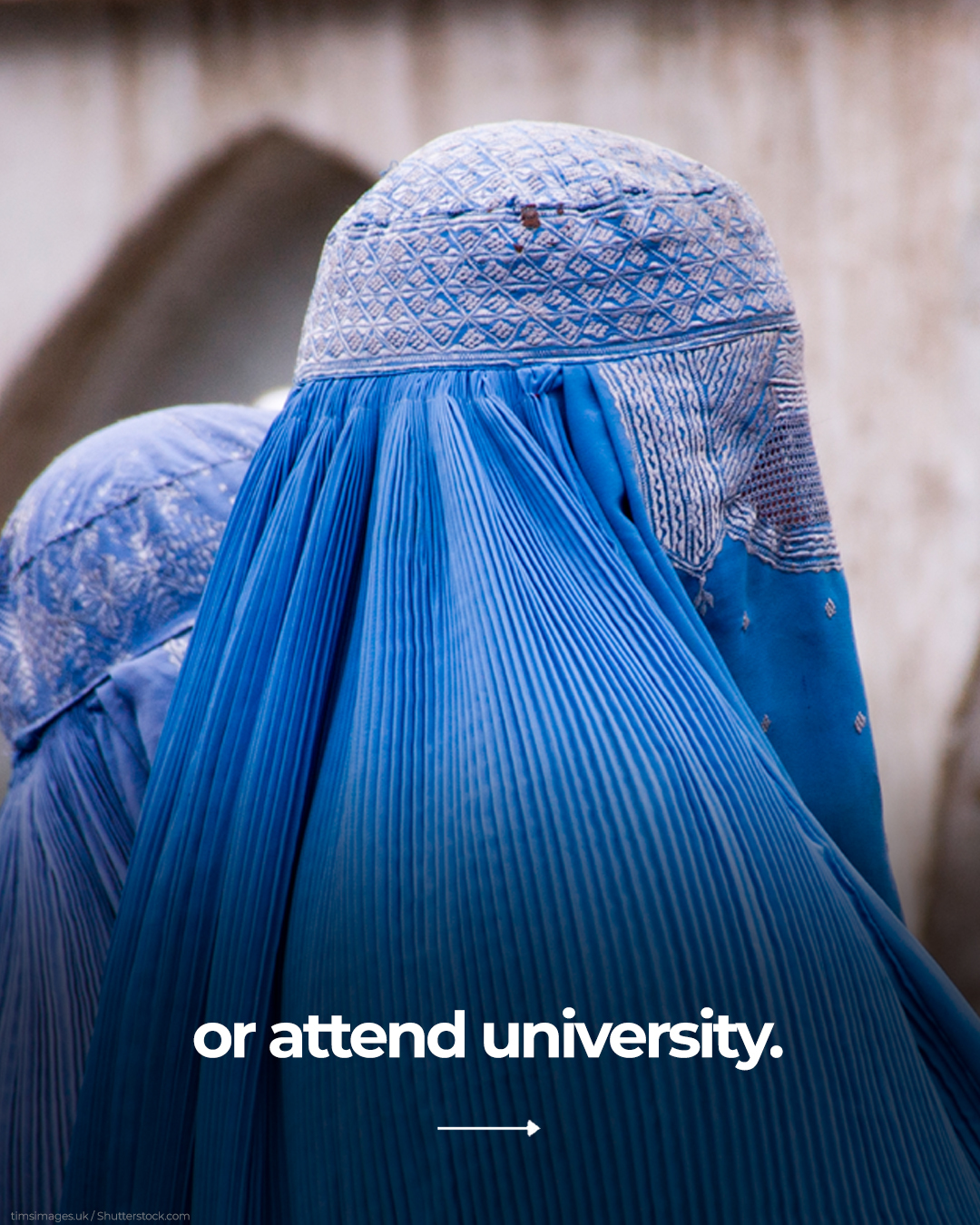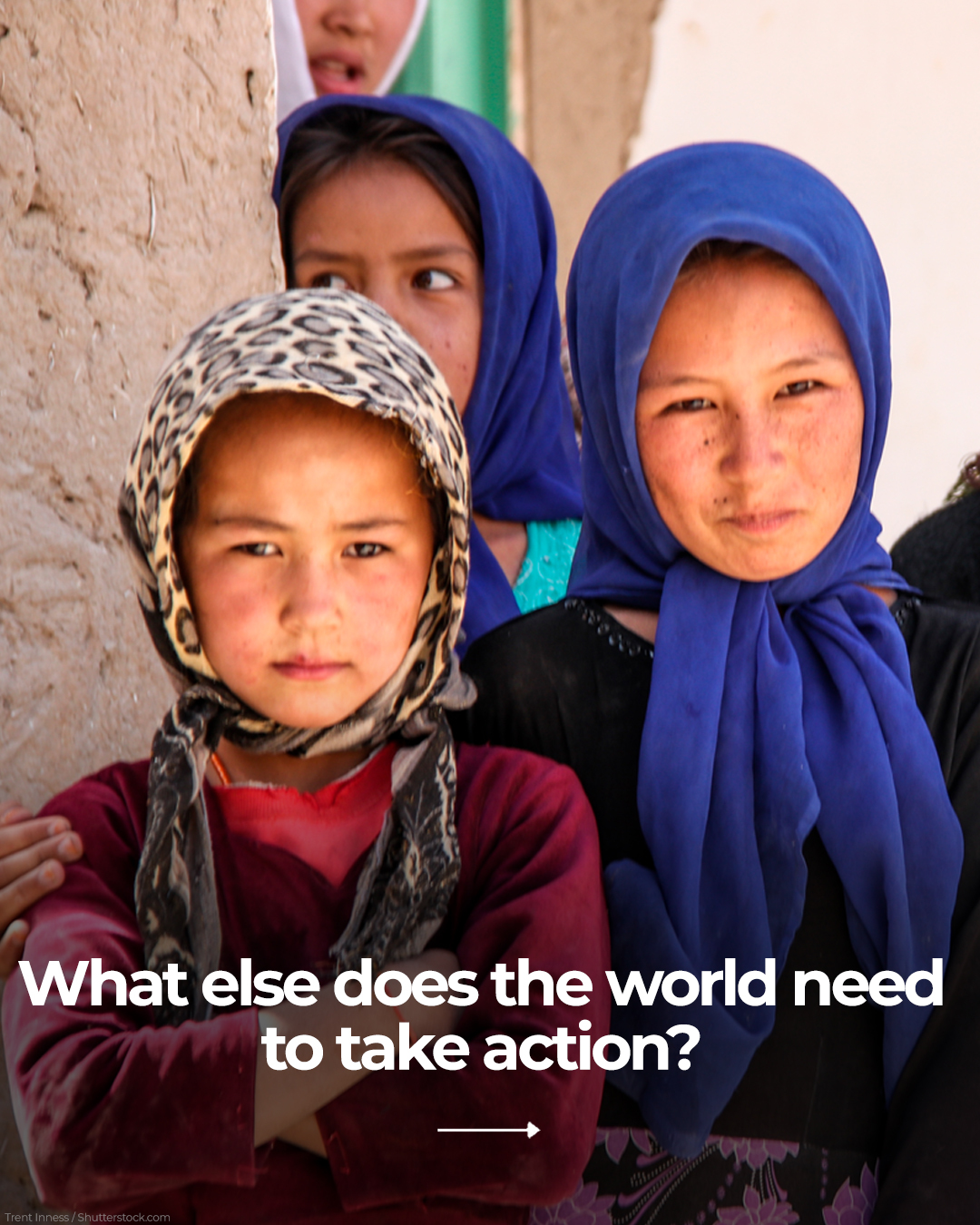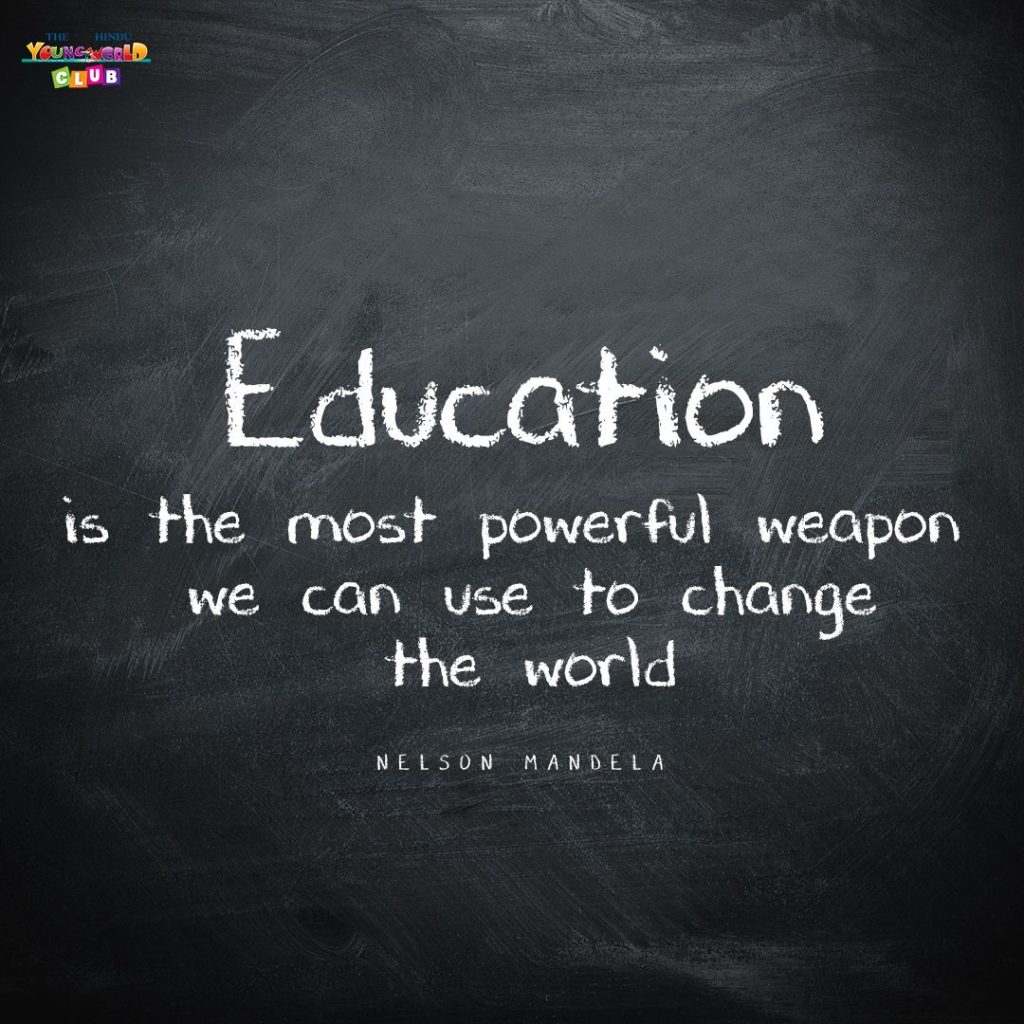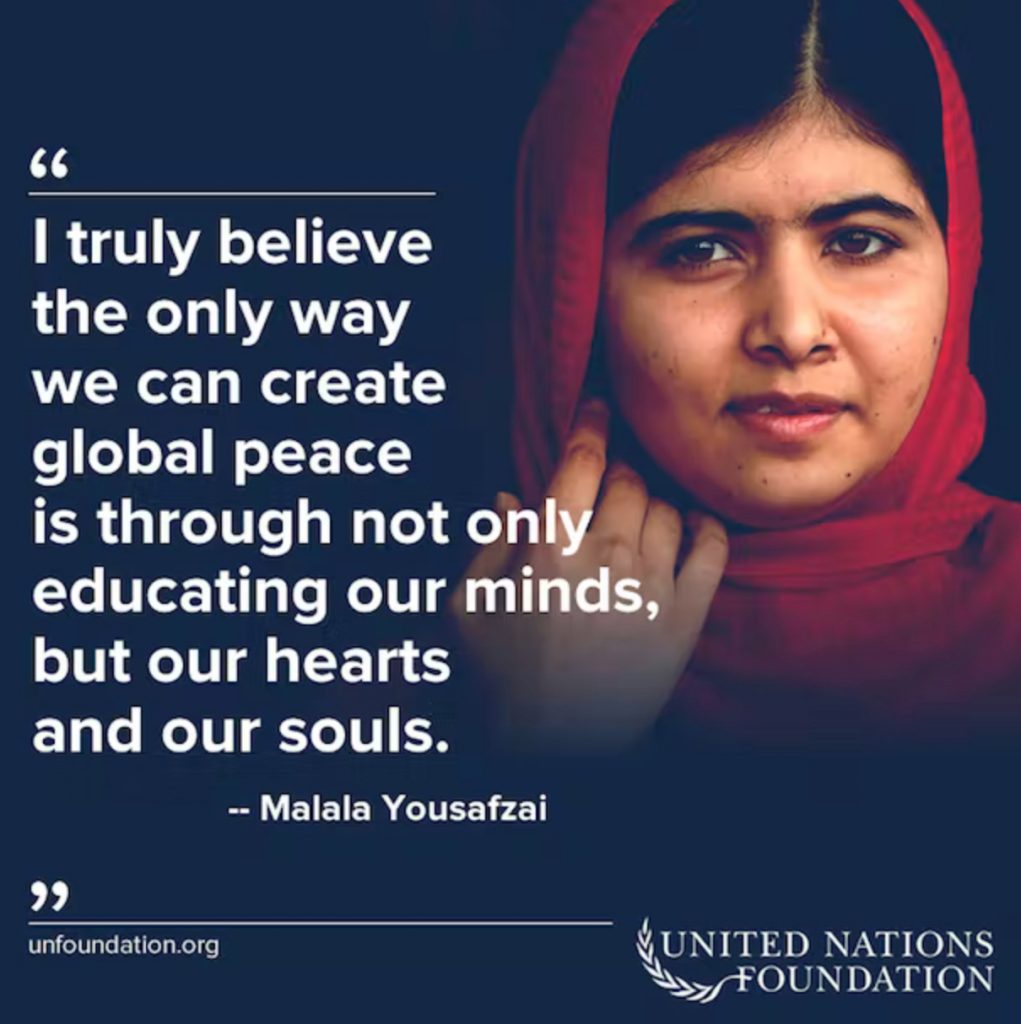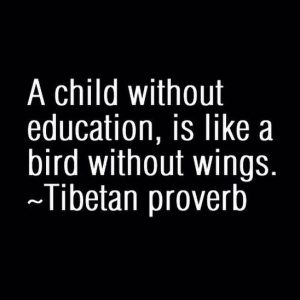
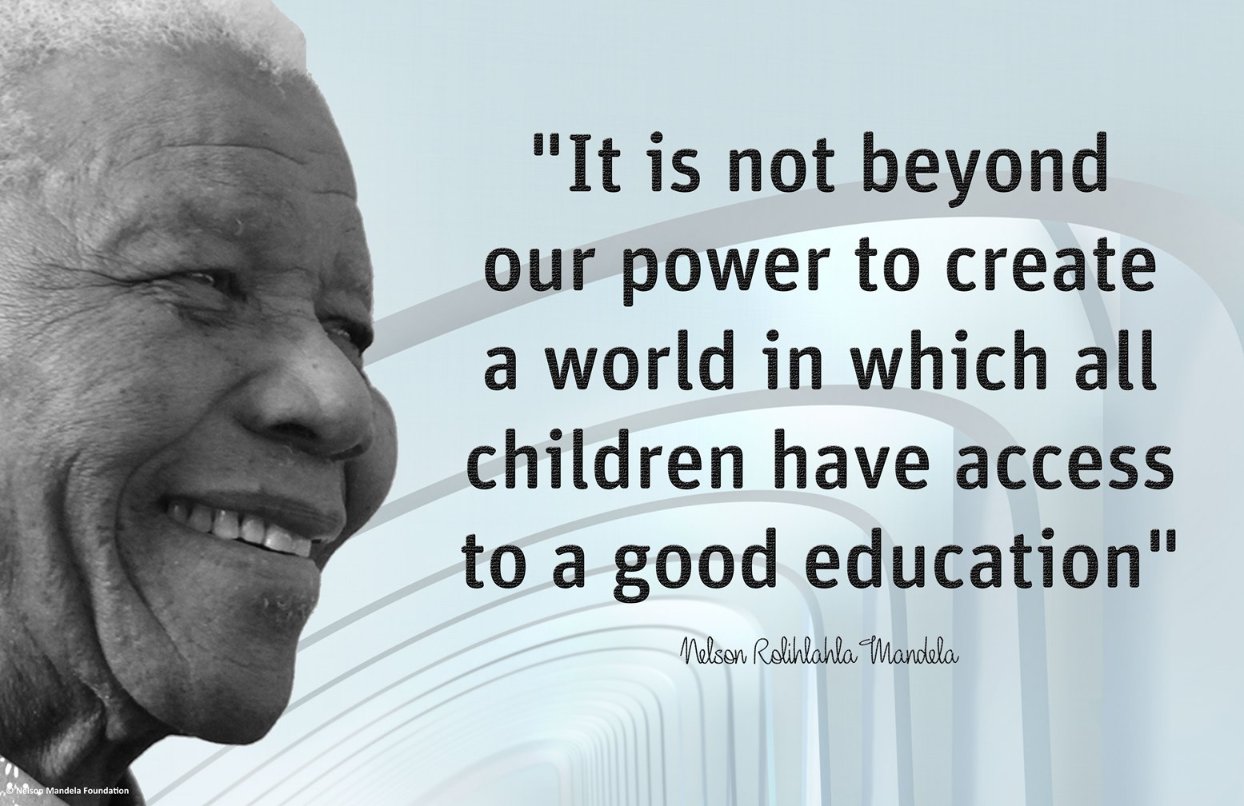
UNESCO dedicates the 2023 International Day of Education to Afghan girls and women
Press release
Audrey Azoulay, Director-General of UNESCO, has decided to dedicate the 2023 International Day of Education (January 24) to Afghan girls and women. On the occasion of an event organized at the UN headquarters, UNESCO will renew its call to immediately restore their fundamental right to education.
A UNESCO advocacy campaign reached over 20 million Afghans to increase public awareness of the right to education for youth and adults, especially adolescent girls and women. UNESCO has also partnered with NGOs on the ground, providing content and funding to deploy a community-based literacy campaign that targeted 25,000 young people and adults in rural areas, including mostly adolescent girls above the age of 15 and women.
To reach as many girls and women as possible, UNESCO is also working to provide distance education through Afghan media outlets, especially radio stations. Radio is accessible to more than two thirds of the population and has the advantage of being available directly in homes.
Thanks to many donors, UNESCO is supporting them in the production of conflict-sensitive, humanitarian, health and educational public interest content, aiming to reach at least six million Afghans, with a specific focus on women and girls. This includes direct support to a women-led station that will produce over 200 hours of educational content per month dedicated to girls and women, broadcast to at least eight provinces across the country in 2023.
Every day without education hinders progress made since 2001
But nothing can replace the classroom, which is a place of social integration, where people learn to live together, where students and teachers take part in the pedagogic process. Therefore, UNESCO and its Member States will also continue their advocacy to put the right to education of Afghan girls and women at the top of the international agenda.
The decisions by the de facto authorities in Afghanistan threaten to wipe out the development gains made by the country over the past 20 years. From 2001 to 2021, Afghanistan saw a tenfold increase in enrolment at all education levels from around 1 million students to around 10 million, with the support of the international community, including UNESCO.
During this period, the number of girls in primary school increased from almost zero to 2.5 million. Women’s participation in Afghan higher education also increased almost 20 times, from 5,000 students to over 100,000. Literacy rates for women almost doubled, from 17% of women being able to read and write in 2001 to nearly 30% for all age groups combined.
Last Update: 23 January 2023
Past Education Day Observances
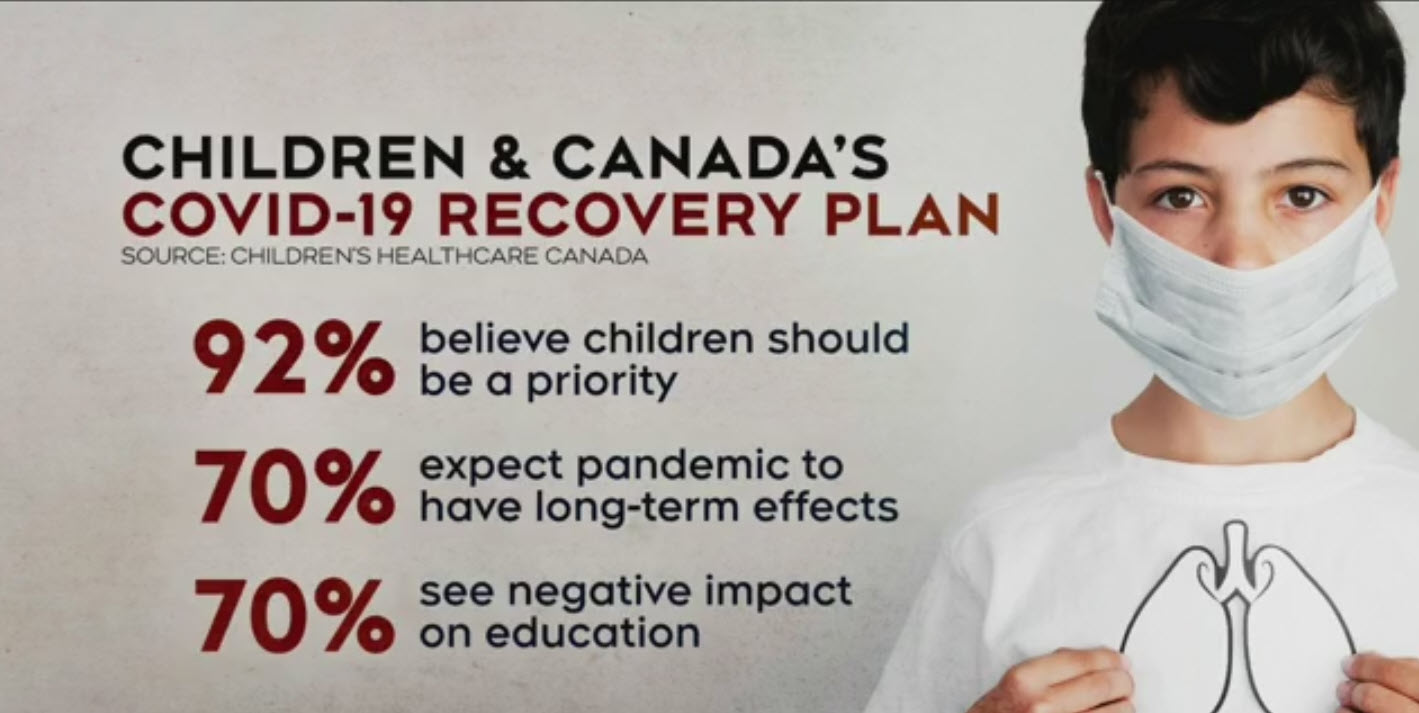

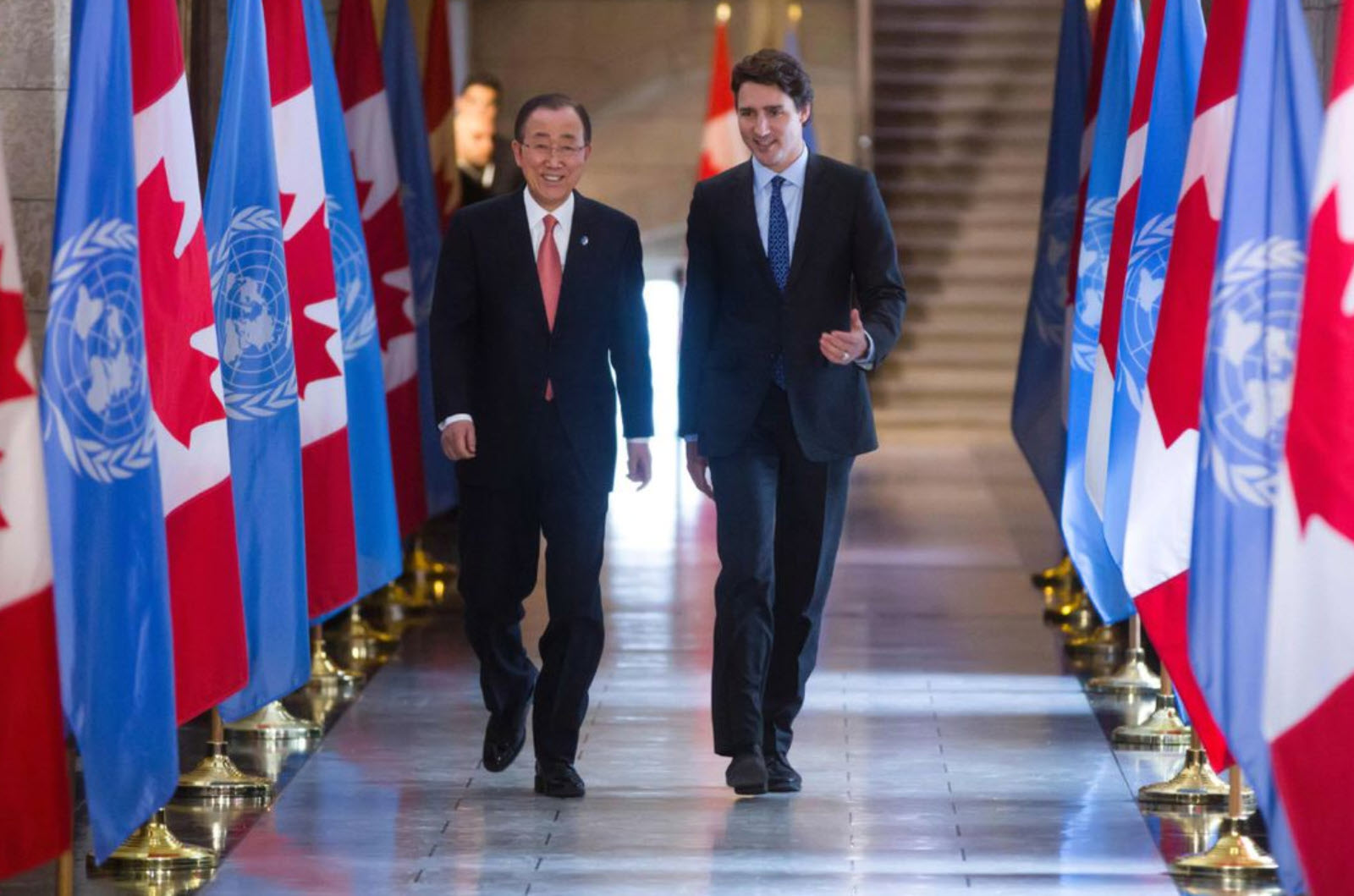
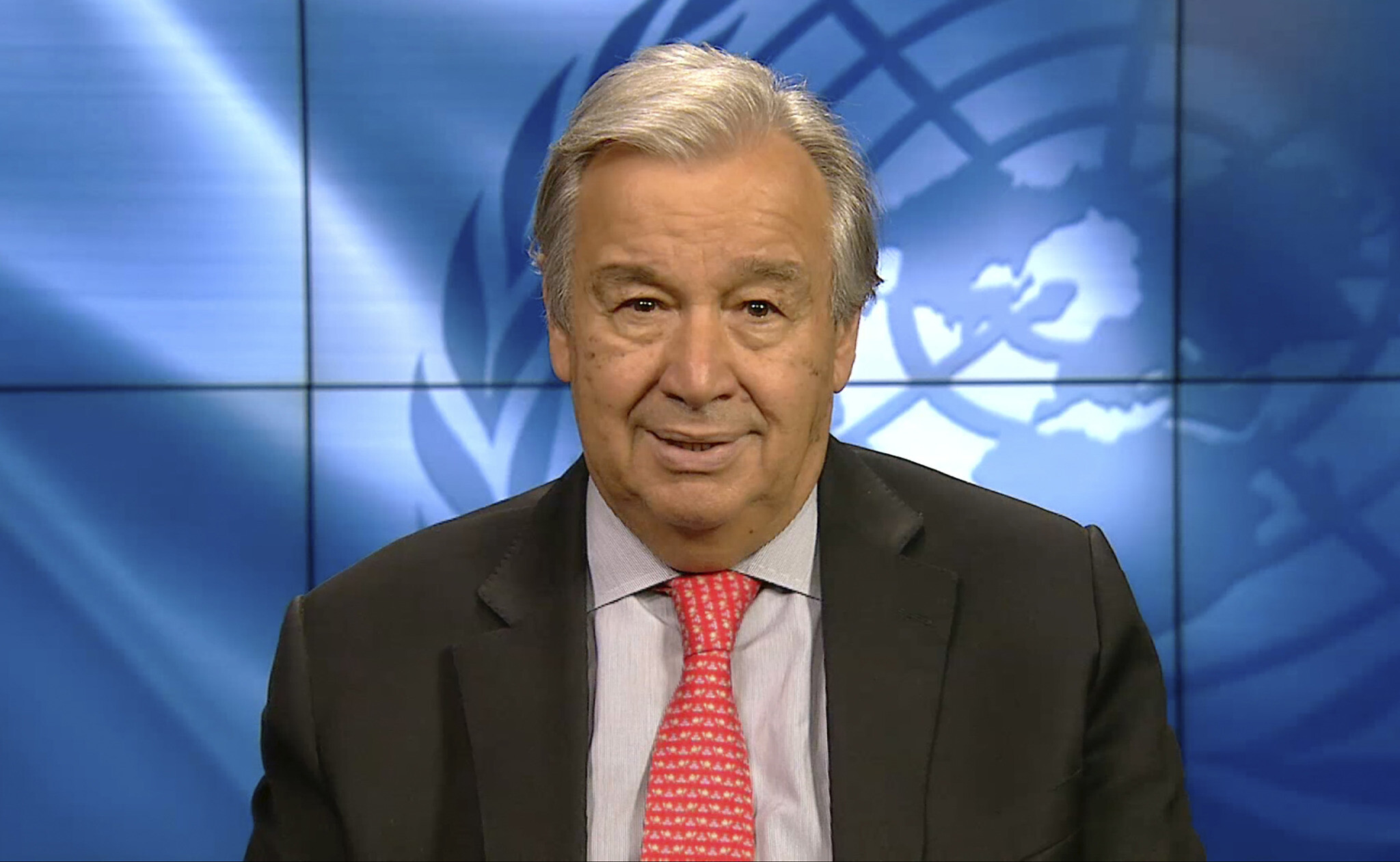
The COVID-19 pandemic has caused chaos in education worldwide.
Some 1.6 billion school and college students had their studies interrupted at the peak of the pandemic — and it’s not over yet.
Today, school closures continue to disrupt the lives of over 31 million students, exacerbating a global learning crisis.
Unless we take action, the share of children leaving school in developing countries who are unable to read could increase from 53 to 70 percent.
But the turmoil in education goes beyond questions of access and inequality.
Our world is changing at a dizzying pace, with technological innovation, unprecedented changes in the world of work, the onset of the climate emergency, and a widespread loss of trust between people and institutions.
Conventional education systems are struggling to deliver the knowledge, skills and values we need to create a greener, better and safer future for all.
Education is a preeminent public good, and an essential enabler for the entire 2030 Agenda for Sustainable Development.
The international community cannot afford to be agnostic about its provision, quality and relevance.
That is why I am convening a Summit on Transforming Education later this year.
The time has come to reignite our collective commitment to education.
That means investing in comprehensive plans to help students recover from learning losses.
It means putting education at the heart of broader recovery efforts, aimed at transforming economies and societies and accelerating progress on sustainable development.
It means financial solidarity with developing countries.
And it means embarking on a process of reflection and analysis to identify how national education systems can evolve and transform between now and 2030.
The Summit on Transforming Education will be the first time that world leaders, young people and all education stakeholders come together to consider these fundamental questions.
On this International Day of Education, and as we prepare for the Summit later this year, I call on everyone to unite around education as a public good and a top political priority for the recovery and beyond.
António Guterres
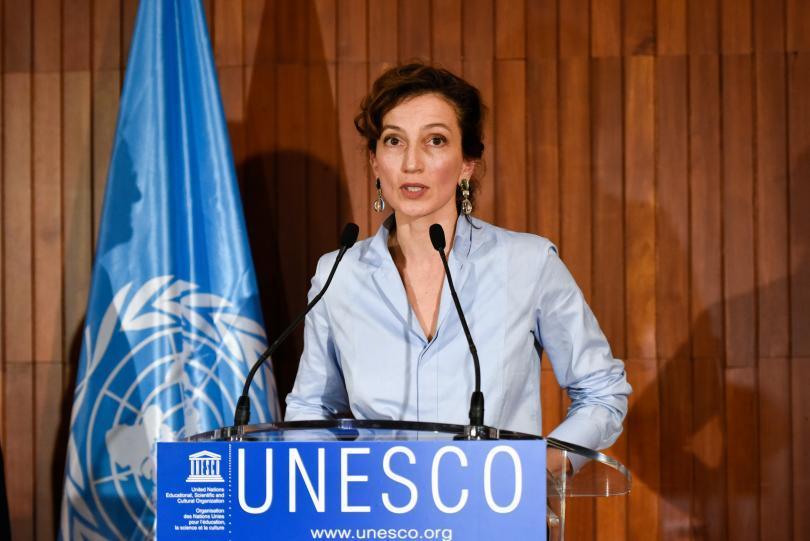
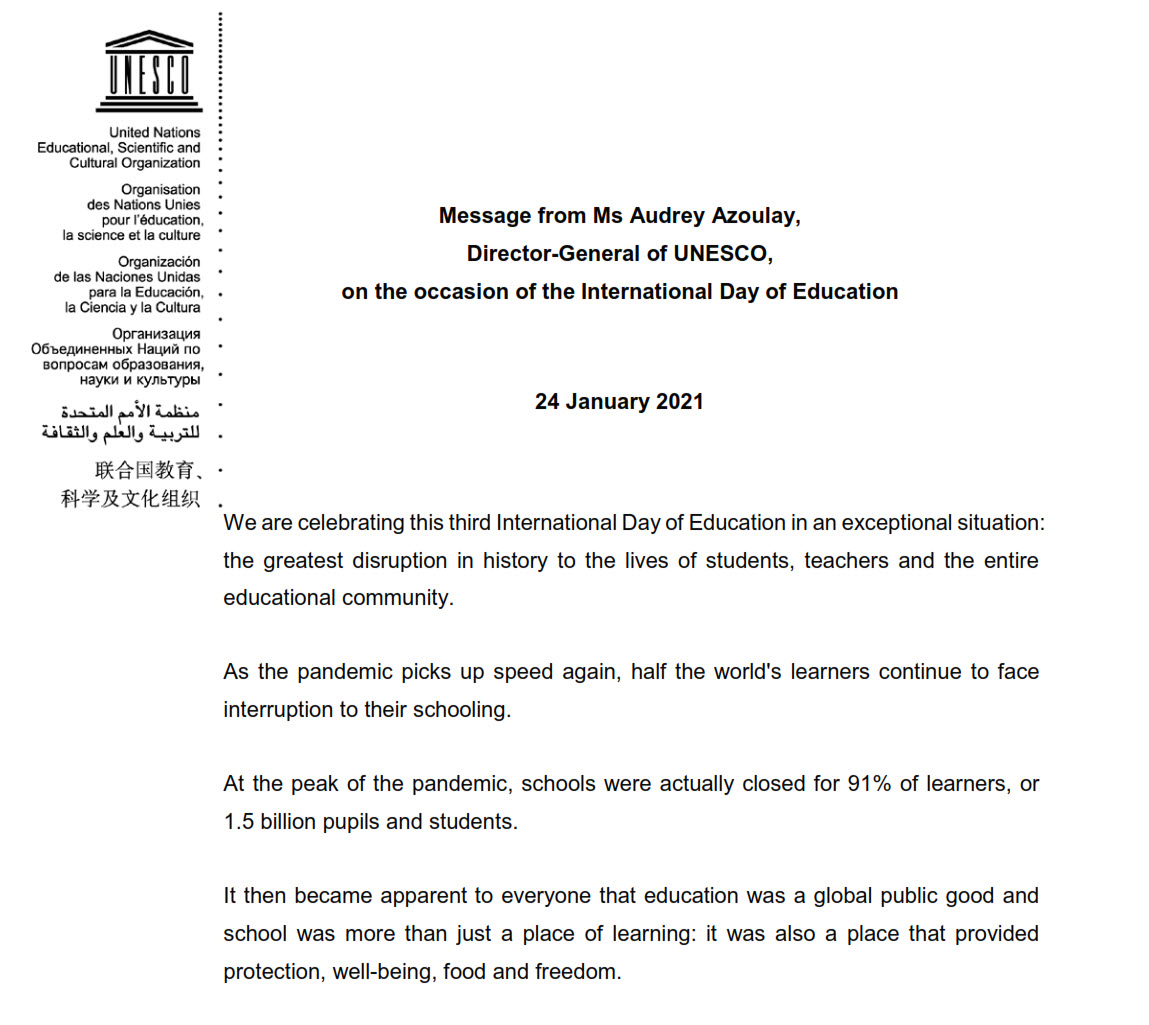
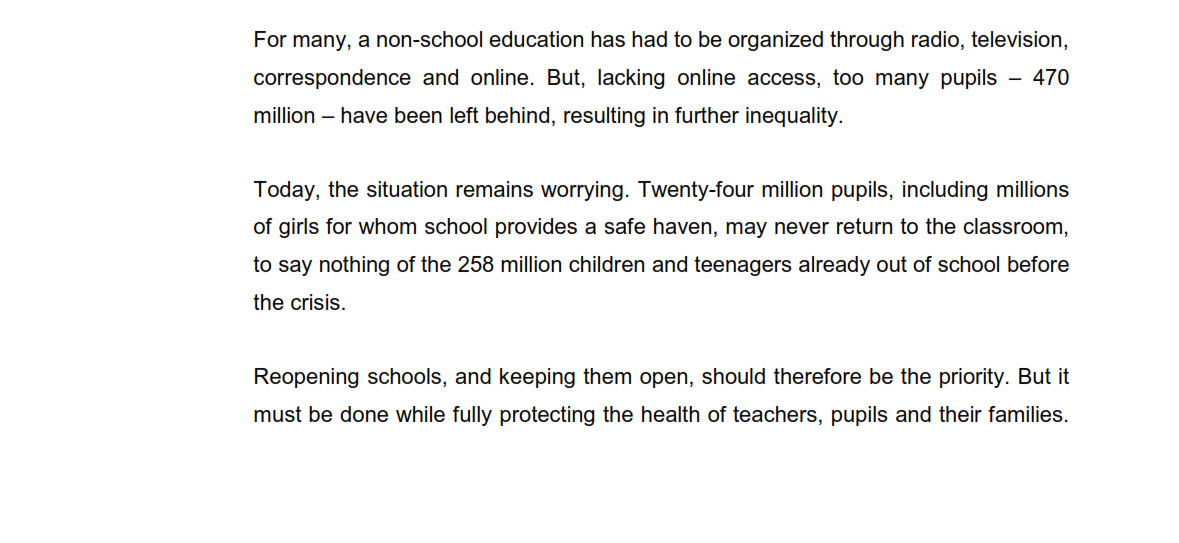
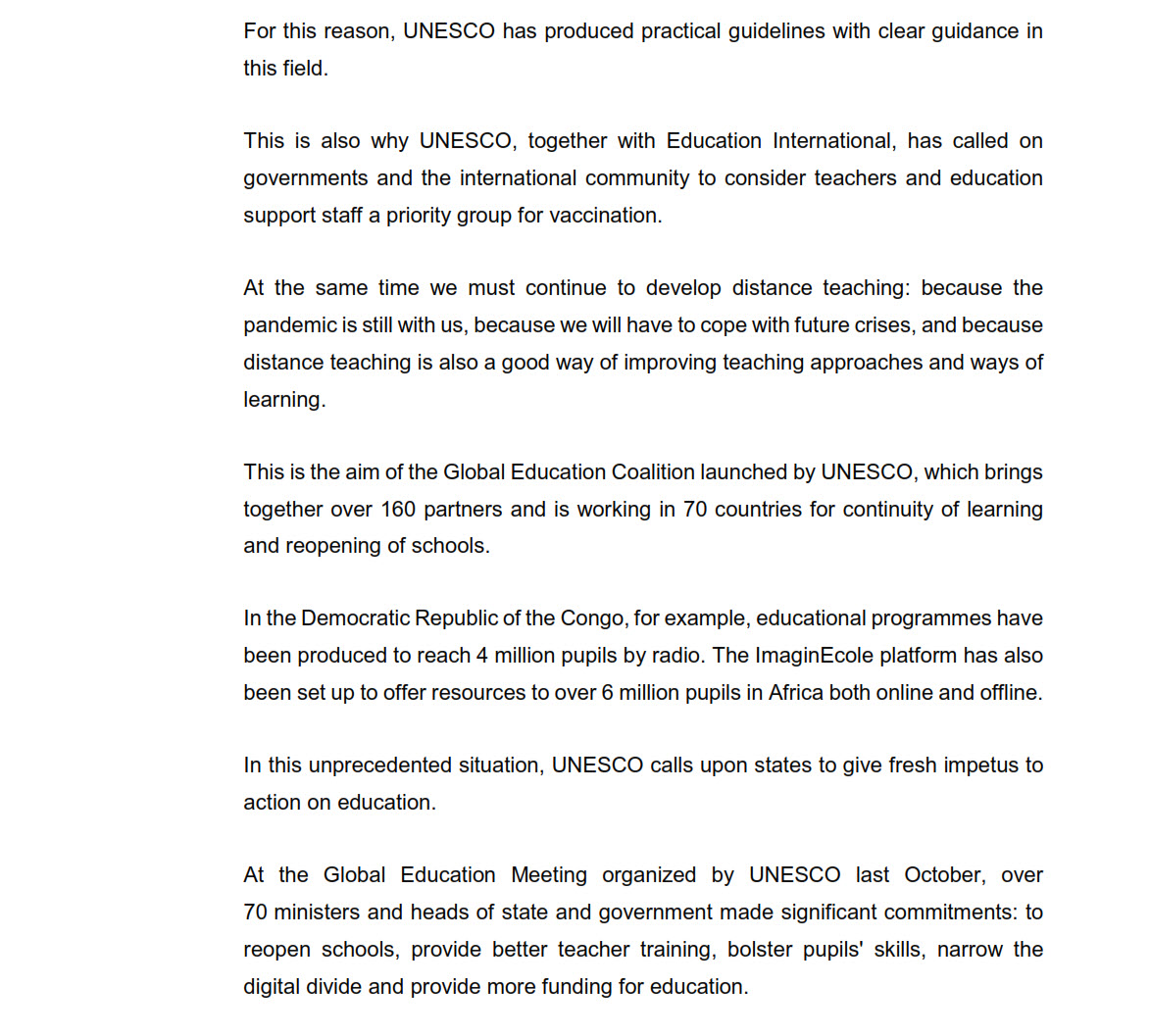

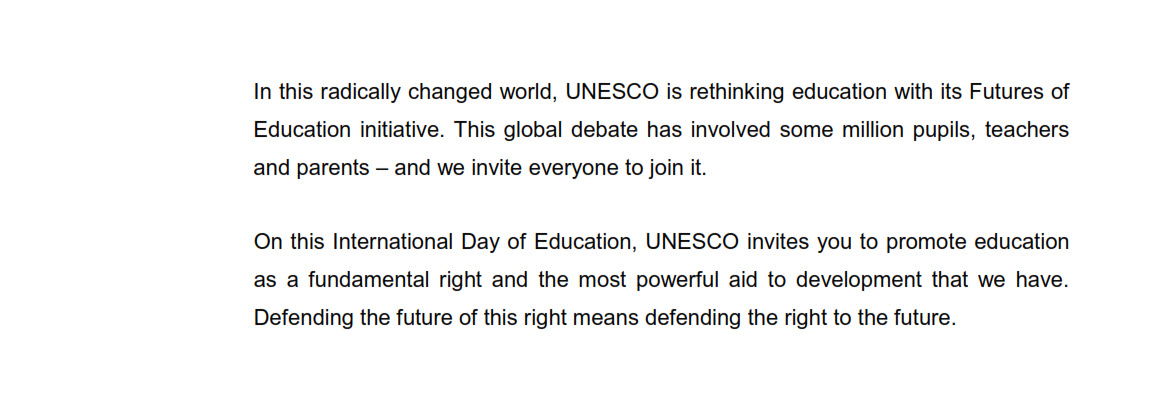
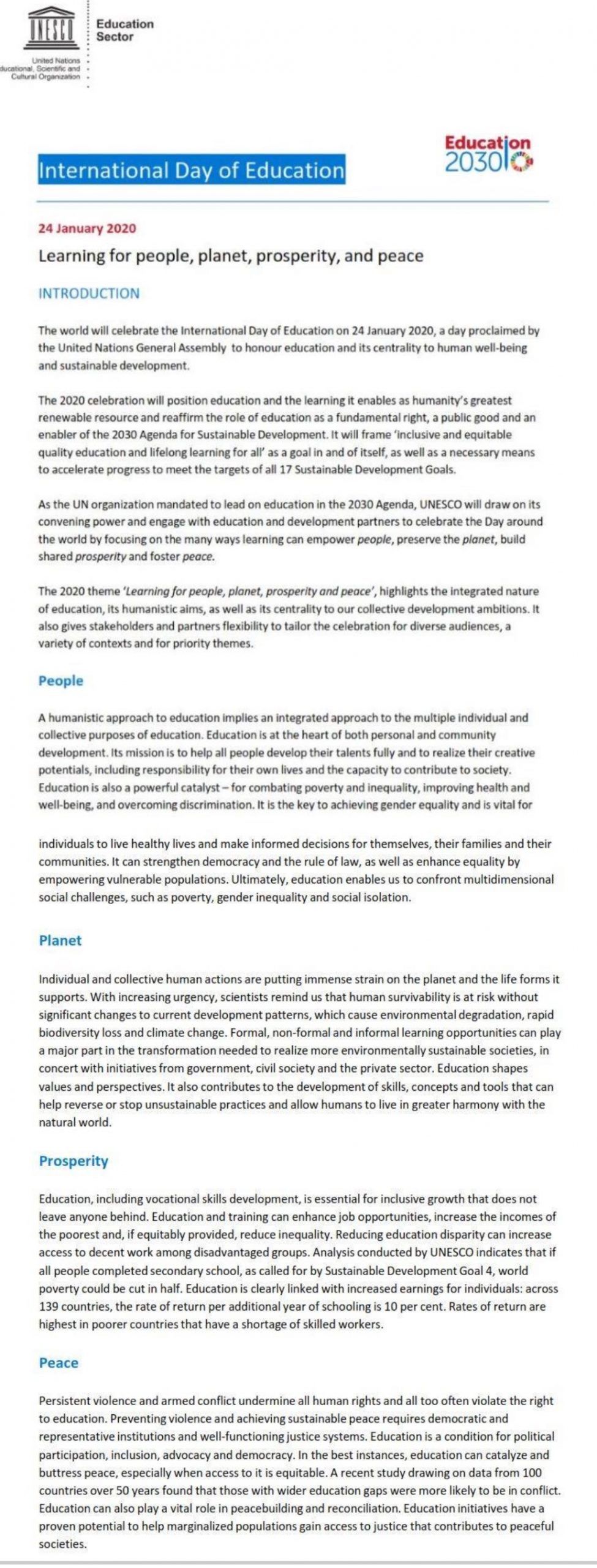
Toronto District School Board Teacher, Mitchell Feinman created content to share with the TDSB Virtual School and learners everywhere!
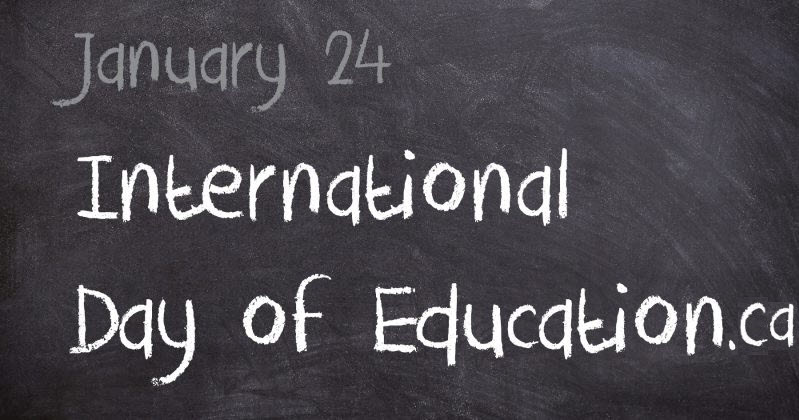
InternationalDayofEducation.ca 2020-2023




